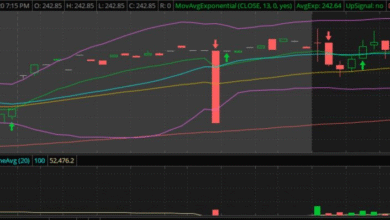Trump Nominee Jobs Report Suspension: What It Means

The Trump nominee jobs report has taken a controversial turn with E.J. Antoni being appointed to head the Bureau of Labor Statistics (BLS). This chief economist from the Heritage Foundation advocates for suspending the monthly jobs report, citing concerns over its accuracy. In a recent interview, Antoni argued that the current reports mislead major stakeholders from Wall Street to Washington, D.C. He suggests that the BLS should instead provide more reliable quarterly data until the job report issues are rectified. These bold statements have sparked debate around the trustworthiness of the labor statistics that shape economic policy.
The recent developments regarding the Trump administration’s employment statistics have raised eyebrows, particularly with E.J. Antoni’s proposal to pause the monthly employment data updates. As the new leader of the BLS, Antoni’s views highlight significant concerns about data credibility that influence economic decisions at every level. His call for relying on less frequent yet more dependable quarterly reports suggests a shift in how labor market information is presented and interpreted. With his background as a critical economist from the Heritage Foundation, Antoni’s recommendations carry weight in discussions about the reliability of economic indicators. The implications of such changes could affect everything from financial markets to policy-making.
E.J. Antoni’s Vision for the Bureau of Labor Statistics
E.J. Antoni, recently nominated to lead the Bureau of Labor Statistics (BLS), proposes significant changes to how labor data is reported. His controversial stance on halting the monthly jobs report is rooted in his belief that the current data is fraught with inaccuracies that undermine investor and policymaker confidence. By suspending these reports until they are corrected, Antoni aims to restore credibility to the BLS, ensuring that decision-makers on Wall Street and in Washington have access to trustworthy information. This proposed approach reflects a broader critique within certain economic circles that are skeptical of the data provided by federal agencies.
Antoni’s emphasis on more reliable quarterly data over the timeliness of monthly reports signifies a shift in prioritizing accuracy over speed. His comments, made in the wake of former BLS Commissioner Erika McEntarfer’s firing, suggest a potential overhaul in how labor statistics are gathered and reported. Critics argue that keeping the monthly reports might better reflect immediate market conditions, but Antoni believes that unless the methodology is corrected, these reports do more harm than good.
The Implications of Suspending Monthly Jobs Reports
Suspending the monthly jobs reports could have profound implications across various sectors, especially in financial markets. Investors and analysts use this data to gauge economic health; thus, any perceived inaccuracy can lead to volatility. Corporations and policymakers rely heavily on employment figures to make strategic decisions, and a suspension could create uncertainty. In an environment where quick and accurate data is crucial, delaying reports may hinder immediate decision-making processes and cause hesitation in market operations.
Moreover, the suspension could initiate debates within political and economic realms about the role of the BLS and how labor statistics are validated. With E.J. Antoni’s background with the Heritage Foundation, his push aligns with a conservative critique of government reporting agencies, suggesting a philosophy that favors private sector evaluations over federal statistics. This discourse invites broader discussions on trust in government data and the essential need for transparency in reporting practices, especially when it pertains to economic indicators that influence millions.
Examining the Role of the Bureau of Labor Statistics
The Bureau of Labor Statistics (BLS) plays a pivotal role in the U.S. economy by producing key employment and economic data. Notably, the monthly jobs report is one of the most scrutinized outputs, summarizing employment trends, industry shifts, and wage data. This report not only influences economic policy but also impacts market reactions, making its accuracy vital for economic stakeholders. A robust and credible BLS can provide insights that are crucial for strategic planning by businesses and government entities alike, establishing a solid foundation for understanding labor market dynamics.
As E.J. Antoni prepares to take the helm, questions arise about how his leadership could reshape the agency’s methodologies. Advocates for reform argue that enhanced accuracy in reporting can lead to superior economic outcomes by aligning policy decisions with true labor market conditions. However, any potential overhaul raises concerns about the transition periods where data might be less frequent or reliable, creating additional uncertainty. It is essential for the BLS to balance the demand for timely updates with the absolute need for accuracy, especially in the current economic climate marked by rapid changes.
Critics of Current Labor Reporting Methods
The criticism directed at the Bureau of Labor Statistics is not new but has intensified under the scrutiny of voices like E.J. Antoni. Economists and analysts have long debated the methodologies used by the BLS in compiling their reports, often pointing to perceived flaws that can distort the true picture of the labor market. Critics argue that faulty data can misguide policymakers, leading to erroneous decisions about interest rates, employment programs, and more. Antoni’s assertion that many BLS reports are ‘phony baloney’ encapsulates a growing frustration among those advocating for improved statistical integrity.
Additionally, critics express concerns regarding how political influences can affect the credibility of government reports. The BLS, as a federal agency, is seen by some as susceptible to changes in political leadership, further complicating the trust placed in its outputs. Advocates for reform, including Antoni, assert that reforming the jobs report would not only enhance accuracy but also restore public faith in governmental data—a vital element for fostering a healthy economic environment where stakeholders can make informed decisions based on reliable information.
Challenges of Obtaining Accurate Employment Data
Gathering reliable employment data presents an ongoing challenge for the Bureau of Labor Statistics. Methodologies employed in surveys, such as household and establishment reviews, can yield differing results due to sample sizes, response rates, and economic dynamics at play. Additionally, external factors like economic shocks, pandemics, or abrupt market changes can alter employment landscapes quickly, complicating the situation further. E.J. Antoni’s call for suspension highlights an urgent need to reassess these methodologies to ensure accuracy and relevancy in reporting.
Furthermore, businesses often struggle with seasonal adjustments that the BLS incorporates into their analyses, sometimes leading to confusion about the real state of employment changes. As industries undergo shifts, the traditional methods of reporting may no longer reflect the evolving job market adequately. Comments from Antoni are thus a rallying cry for a fundamental reevaluation of how employment statistics are collated and reported, advocating for processes that are more transparent and adaptable to contemporary labor market realities.
The Future of Labor Data Reporting Under Antoni’s Leadership
With E.J. Antoni poised to lead the Bureau of Labor Statistics, the future of labor data reporting may experience significant changes. His critical stance on the current reporting practices suggests that he may prioritize a comprehensive review of existing protocols to enhance the quality of labor statistics. Implementing new standards may involve the adoption of advanced statistical techniques and technology that help capture a more accurate snapshot of the workforce. Such changes could provide more timely and useful insights to both policymakers and private sector stakeholders.
Furthermore, Antoni’s goals may foster a new era of accountability at the BLS. By focusing on rectifying the inaccuracies in the monthly jobs report and offering robust quarterly data, Antoni’s leadership could build a foundation for better trust among entrepreneurs, analysts, and the public at large. Future adjustments to how labor data is assessed could lead to enhanced strategic planning capabilities across various sectors, ultimately benefiting the U.S. economy as a whole.
Navigating Political Ramifications of Employment Data
The political implications of employment data reporting extend far beyond economic statistics; they can influence significant policy decisions and voter perceptions. E.J. Antoni’s proposed suspension of the monthly jobs report may stir political debates on the credibility of government agencies and the ramifications of having accurate versus timely data. As stakeholders analyze the political motivations behind the BLS reports, they must consider the broader context of how these statistics play into electoral dynamics and governance.
In a political landscape where data can sway public opinion, Antoni’s leadership could redefine how employment statistics are perceived within governmental debates and policies. A stronger emphasis on fact-checking and accurate reporting can instill greater faith in government institutions, especially when it comes to economic strategies and labor legislation. As the country prepares for an election cycle, showcasing confidence and reliability in employment reporting will be essential for ministers and influencers attempting to advocate for policies based on robust labor data.
Building Public Confidence in Labor Statistics
Public confidence in labor statistics hinges on the perceived accuracy and reliability of the Bureau of Labor Statistics. With growing concerns about misinformation and unreliable data sources, E.J. Antoni’s push to revise the BLS’s data reporting practices underscores the importance of building transparency in the dissemination of employment information. By advocating for suspension until corrections are made, Antoni hopes to reassure the public that the statistics they rely on for understanding the labor market will reflect true economic conditions.
An increase in public trust can also lead to more thorough discourse around economic policy and labor reforms. When citizens have faith in the data that informs government decisions, it can pave the way for constructive discussions on labor laws and initiatives aimed at bolstering employment. The challenge ahead will be not just to make necessary adjustments within the BLS but to effectively communicate these changes to the public in a manner that fosters trust and engagement regarding economic issues.
The Economic Discourse Surrounding Employment Figures
The economic discourse regarding employment figures is complex, involving multiple stakeholders—from government officials to business leaders and economists. The monthly jobs report is more than just a statistical summary; it serves as a barometer for economic health and can influence everything from fiscal policy to consumer confidence. The dialogue surrounding these figures is often shaped by perceptions of economic reality, which can be swayed by political narratives, public sentiment, and media representations of labor data.
E.J. Antoni’s perspective on the current state of labor reporting ignites further discussion on how data can be leveraged, manipulated, or neglected in economic policymaking. By advocating for the suspension of the monthly jobs report until its accuracy can be ensured, he underscores the necessity for a thorough reevaluation of how labor statistics feed into larger economic narratives. This scrutiny can lead to more informed economic debates and ultimately contribute to a deeper understanding of labor market realities.
Frequently Asked Questions
What does E.J. Antoni propose regarding the Trump nominee jobs report?
E.J. Antoni, the Trump nominee for the Bureau of Labor Statistics, proposes suspending the monthly jobs report until it is corrected, advocating for more accurate quarterly data instead.
Why does E.J. Antoni want to suspend the monthly jobs report from the Bureau of Labor Statistics?
E.J. Antoni argues that the monthly jobs report from the Bureau of Labor Statistics has issues that undermine its reliability, leading to a lack of confidence among major decision-makers on Wall Street and in D.C.
How could suspending the jobs report impact economic decision-making?
Suspending the jobs report, as suggested by the Trump nominee E.J. Antoni, could prevent reliance on potentially misleading data, thereby encouraging decision-makers to use more reliable quarterly job statistics for better economic planning.
What are the implications of E.J. Antoni’s comments about the jobs report?
Antoni’s comments imply that he believes the current monthly jobs report is flawed, which could result in negative economic consequences if leaders continue basing decisions on unreliable data from the Bureau of Labor Statistics.
What are the criticisms E.J. Antoni has raised against the monthly jobs report?
E.J. Antoni has criticized the monthly jobs report from the Bureau of Labor Statistics as being ‘phony baloney,’ suggesting that its methodology has led to inaccuracies that misinform economic conditions.
Who is E.J. Antoni and what is his role in relation to the jobs report?
E.J. Antoni is the Trump nominee to lead the Bureau of Labor Statistics, where he seeks to reform how job data is reported, particularly focusing on suspending the monthly jobs report until accuracy is improved.
What changes might occur under E.J. Antoni’s leadership regarding the Bureau of Labor Statistics jobs report?
Under E.J. Antoni’s leadership, there may be a shift toward suspending the monthly jobs report in favor of publishing more accurate quarterly job statistics from the Bureau of Labor Statistics.
What does the Heritage Foundation’s involvement mean for the Trump nominee jobs report?
As the Chief Economist of the Heritage Foundation, E.J. Antoni’s views on suspending the jobs report reflect a broader conservative critique of government data, potentially influencing future employment data reporting strategies.
When did E.J. Antoni express concerns about the jobs report?
E.J. Antoni expressed his concerns about the reliability of the monthly jobs report shortly after being appointed by President Trump, during a Fox interview where he highlighted the need for data correction.
What is the primary concern regarding the Bureau of Labor Statistics monthly jobs report?
The primary concern regarding the BLS monthly jobs report, as noted by E.J. Antoni, is its accuracy and reliability, which impact decision-making in financial and governmental sectors.
| Key Point | Details |
|---|---|
| E.J. Antoni’s Appointment | E.J. Antoni has been nominated by Trump to lead the BLS. |
| Suspension of Monthly Reports | Antoni suggests halting the monthly jobs reports due to concerns about their accuracy. |
| Call for Quarterly Data Release | He advocates for continuing to publish quarterly data, which he views as more accurate. |
| Criticism of BLS Data | Antoni has criticized the BLS’s data, calling it ‘phony baloney’, highlighting his distrust in its reliability. |
Summary
The Trump nominee jobs report highlights significant changes in leadership at the Bureau of Labor Statistics, with E.J. Antoni suggesting a suspension of monthly jobs reports due to concerns over accuracy. This move, reflecting Antoni’s long-standing criticism of BLS data, aims to restore confidence among key stakeholders in the decision-making process.




